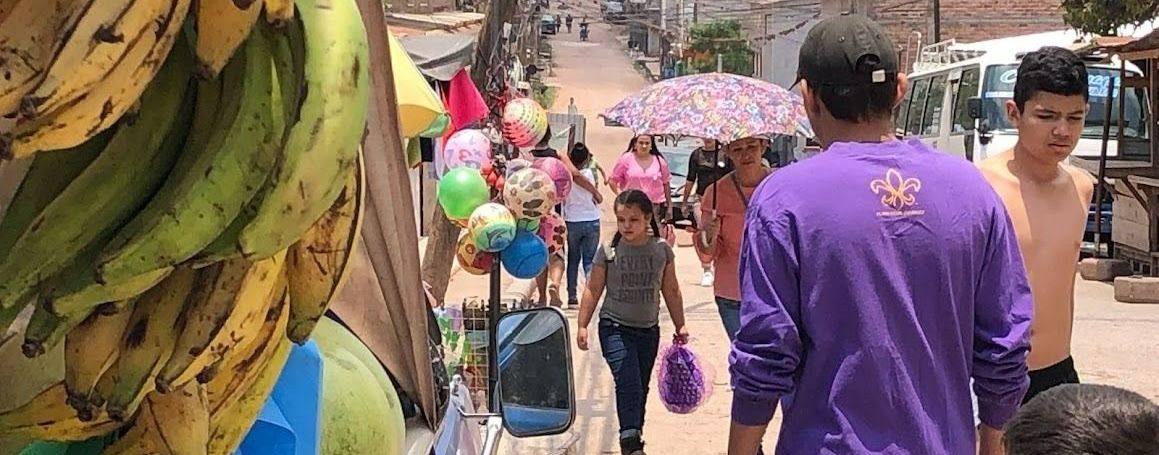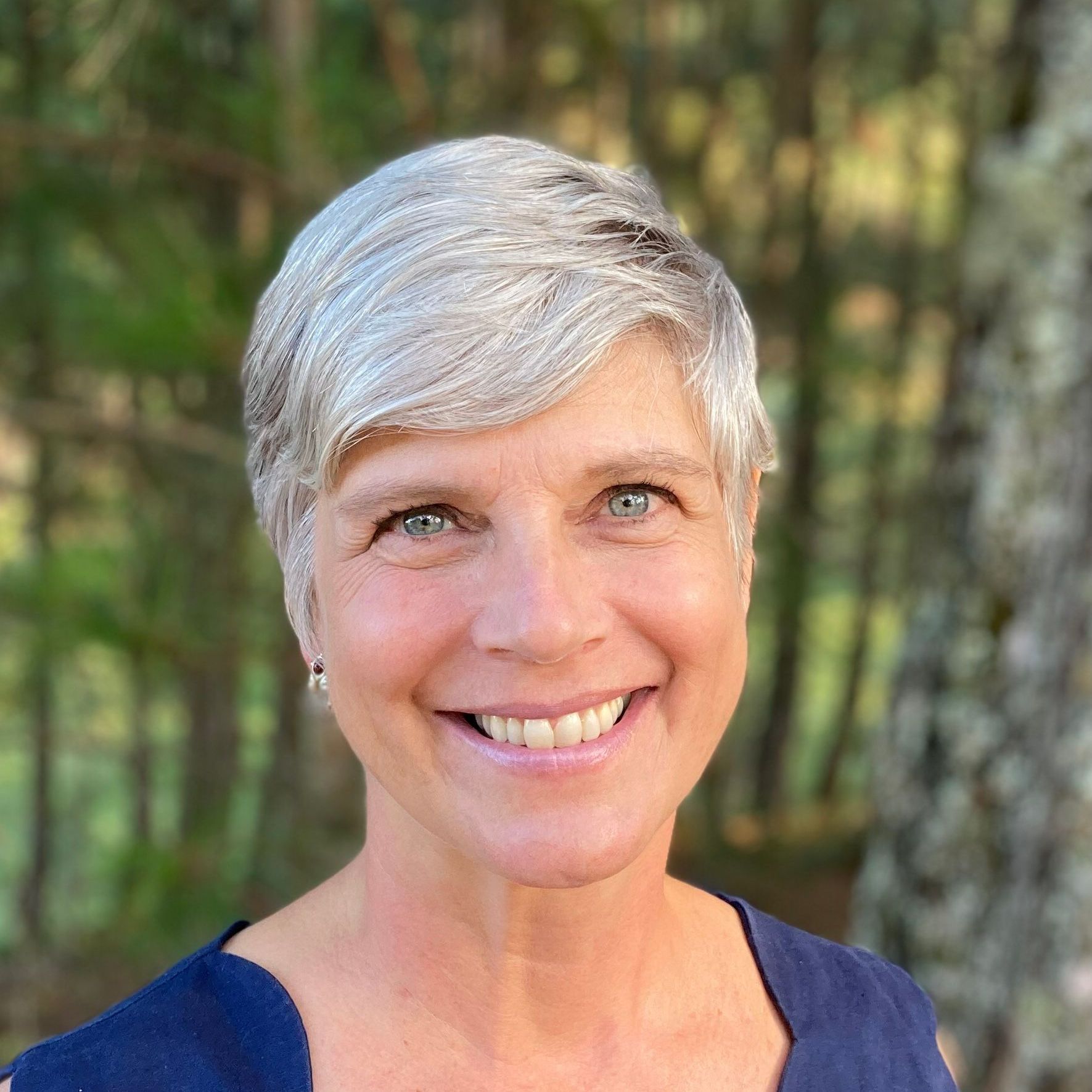AUTHOR
Jo Ann Van Engen
Donor Liaison, ASJ-US
July 1, 2025

For the past 25 years I have lived in the same neighborhood in Tegucigalpa, Honduras. The friends I made when I was 35 are still my friends today, and a lot of our conversations center on how our adult children are doing.
Paula is one of those friends. She is ridiculously proud of her kids: Mari, Ricardo, Gabriel, Sofia, Kati, and Alexa. They are smart, funny, and kind. They love to tease each other, and they each talk to their mom every day. This is astonishing to me for the obvious reasons, but especially because all but one of Paula’s children live outside of Honduras. Three live together in Spain, where they work in home health care and construction. Two live and work in the US. Only her daughter Sofia lives in Honduras with her husband and two children.
Paula is just one of many friends who have children in the US. There’s also Magda’s son, Andres; Lourdes’ daughter, Sindy; and Priscilla’s granddaughter, Rebecca. I could keep going.
These young people have a lot in common. They work hard and don’t drink or get in trouble. They are often lonely, and their families miss them and worry about them every single day.
My friendship with these women and their kids has made me deeply aware of how immigration impacts Honduran families–in both good ways and bad.
The US needs willing workers like Gabriel, Alexa, and Andres, and they need the work so they can support their families in Honduras. And they are working hard! Check out this astonishing statistic: Hondurans in the US currently send six billion dollars a year back to their families in Honduras. It is the #1 source of income for the country.
But many of my friends’ children go to the US without a work visa because those visas are almost impossible to get. They plead asylum at the border or pay someone to help them cross the border illegally; not because that is their first choice, but because, despite knowing jobs are waiting to be filled, they can’t get a visa that allows them to go do that job. The immigration system is pretty broken.
If you know a dairy farmer, orchard owner, or landscaper, ask them how hard it is to get workers through work visa programs. Most give up. It is just too much red tape, too expensive, and too uncertain. Some might admit that they hire workers without legal status–not because they want to, but because they don't feel they have a choice.
My friend, Johny, is a rare exception. He is an elder in our little neighborhood church. His wife, Digna, is in charge of the Sunday school. Two years ago, Johny was approved for an H-2B visa to work in Tennessee doing landscaping. He works there for six months of the year and the other six months he is back in Honduras with his family, active in our community and in our church. Everyone in our church is jealous of his good luck. His H-2B visa means he can legally and safely go to the US each year and then return to Honduras without fear of being arrested.
Last Sunday I talked to Digna to see how she felt about Johny’s job. She admitted that when her husband told her that a friend had given his name to a recruiter, she was sure it was a scam–everyone knows someone who has lost money to people pretending to offer work visas. But, now she is thrilled. “The visa has been such a blessing. Johny is treated well at his workplace. He works regular hours, and they pay him a decent wage.” And most importantly for Digna: “He comes back to us every six months.”
Making work visas easier to get would go a long way toward fixing the problem of undocumented immigration and would be welcomed by hardworking people like my friends’ kids.
President Trump’s back and forth on whether to deport undocumented immigrants working on farms, meat packing plants, and other industries is one more indication of the urgent need to figure out how to make work visas available.
In April, the President mentioned in a cabinet meeting that he was working on creating better legal channels for immigrant workers.
"We're going to work with farmers that, if they have strong recommendations for their farms, for certain people, that we're going to let them stay in for a while and work with the farmers and then come back and go through a process, a legal process. We have to take care of our farmers and hotels and various places where they need the people," Trump said.
Work visas would allow people like my friends’ children to work part of the year in the US while still staying connected to their families, communities, churches, and country.
Because the truth is that while Honduras’ unemployment rate is high and salaries are low, Honduras needs these young people, with their work ethic, creativity, and intelligence.
And their families need them. Losing so many young people is tearing apart the strong fabric of Honduran families–children are growing up without their parents, grandparents are raising grandchildren. In a country where adult children seldom left home until they started their own family, many households today are empty of young adults. It is painful to watch.
I pray that President Trump and his advisors will follow through on making work visas attainable, so that the thousands of jobs that need doing in the US can be filled by willing, hardworking people like my friends’ children who would jump at the chance to earn money abroad and to continue to be part of the countries they call home.
Win-win.

AUTHOR
Jo Ann Van Engen
Donor Liaison, ASJ-US

GET TO KNOW US
PO Box 888631, Grand Rapids, MI 49588
| info@asj-us.org | 1 (800) 897-1135
ASJ (formerly known as AJS) changed our name in 2021 to reflect our partnership with Honduras and our Honduran roots. Learn more.
© 2022 ASJ-US All Rights Reserved. ASJ-US is a U.S. registered 501(c)(3) non-profit organization.
Powered by AutomationLinks